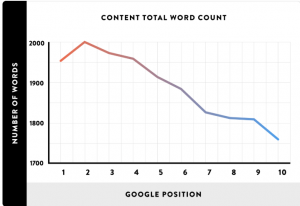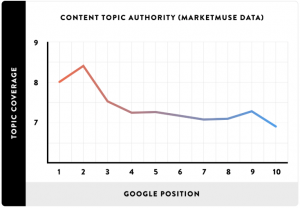SEO: Be a Keyword Champion
By: Nate Fuller
75% of people never scroll past the first page of search results. This fact explains why a mind-boggling $68 billion was spent on search engine optimization last year alone. So how do you get your site to the top of that first results page? Trends in SEO change faster than you can Google the answer. Want to be a keyword champion? Check out the tips below.
Keywords are easy.. right?
We all know that keywords are the backbone of SEO. Search engines examine every inch of your website, and the more relevant keywords that your site has to a search term, the higher it will end up in the results. This sounds like a breeze, right? Just load your page up with words that are similar to the search terms that you are targeting and your golden. Wrong. Google (and other search engines), have gotten smarter every year with their algorithms. The question is how?
Latent Semantic Indexing
A common way of identifying relevance in keywords is latent semantic indexing (LSI). LSI is a specific method of relating words, or combinations of words, based on more than their dictionary definition. LSI looks at the context in which your keywords are placed, compared to the context of a search result, and then decides on relevance. Clearly, this is a pretty complicated algorithm, and it isn’t an easy game to rig; so you’ve got to do it right. What are some ways to get these keywords right?
Longer content wins… to an extent
First off, size matters. Believe it or not, web content (like blog posts) tend to rank better when they have around than 2,000 words. This seems counterintuitive to what we might think, but a study of 1 million keywords found that these ~2,000 word pages ranked in the top two spots in the search results.

Results of 1 million keywords researched
Second, don’t just write long content for the sake of writing long content. Although we just said that writing long-form content can get you to the top of this list, don’t forget about context. Google also prefers pages that go in-depth on a certain topic. The idea is to provide one place for someone to find all of the info on their search term. If you take a look at the graph below you can see that content coverage has just as much impact on search ranking as keyword usage.

Results of 1 million keywords researched
Alexa, what about voice search?
Searches aren’t just typing on a keyboard anymore. People are searching in increasingly different ways. One of the biggest search methods we will see continue growing is voice search. But how do you optimize your site for voice search? First (obviously), you want to be high in search results. Ideally you want to be in the top five results on a page, where ~75% of voice searches pulled their data from in one study. This same study found that 40% of the voice searches pulled information from a featured snippet. A featured snippet, like the image below, is when Google tries to make it extra easy to find your answer to a question. If you can get yourself in a featured snippet, you’re doing the right things. The last thing you should do if you want Alexa to give you any attention is to phrase some of your content as question and answer. If you can phrase the question and then provide the answer in the same webpage, your chances of being picked up in voice search greatly increases.
There are millions of way to approach your SEO planning according to the experts at sirlinksalot. These keyword tips are a great place to start. Just make sure your web content is relevant, consistent, and in-depth and you’ll be on your way to becoming a keyword champion. You’ve got this!
